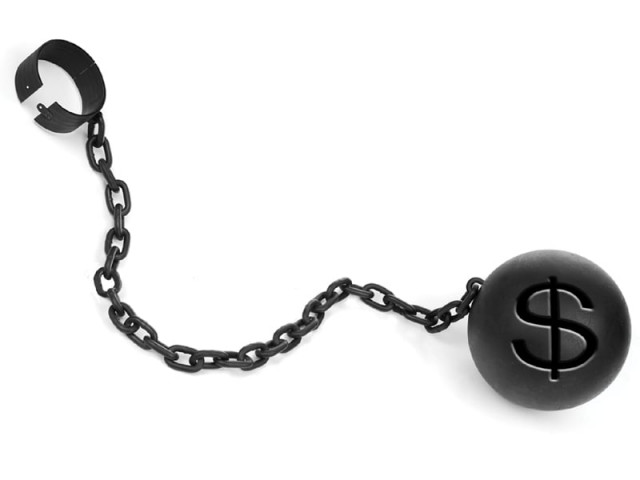From gold to dollar: How the modern financial system is undermining Pakistan
The US has the ability to not just tax its own citizens but also foreign countries.

From gold to dollar: How the modern financial system is undermining Pakistan
When Pakistan gained independence, it entered a financial system in which the odds were stacked against it. As the financial system changes almost every 40 years, it is vital to analyse its history and mechanism in order to understand the dynamics that influence Pakistan.
During the classical gold standard (1817-1914) currencies were pegged to gold, and the elasticity of the currency was determined through it. A gold standard impels governments to be responsible: Investors that hold bonds can redeem gold if politicians run unsustainable deficits. It equally maintains open international trade equilibrium as gold is exchanged: When nations with comparative advantages experience an economic boom via exports they accumulate gold and are able to expand their currency supply to support it. With the economic boom the demands for imports accelerates, and gold begins to flow out leading to money supply contraction (deflation). Falling prices make the country attractive to foreign buyers and boosts exports again, the process restarts. In the long term, gold ensures a cyclical process.
Dollarisation
With the European and Japanese manufacturing base all but shattered after World War II, the United States emerged as an export leader accumulating 2/3 of the world’s gold. In 1944, 44 countries established the Bretton Woods System in which it was agreed to peg currencies to the US dollar, and make it redeemable for gold at $35 an ounce.
From 1959 to 1971, Gold reserves in US Vaults depleted by 50% due the costly Vietnam War and the Great Society Program. In addition, in1971, the US incurred its first ever current account deficit of $400 million. Nervousness spread across the globe and trading partners of the US scrambled to redeem dollars for gold. As the US did not have enough gold to pay all claims, on August 15 of 1971, President Nixon shocked the entire world by announcing unilaterally that the dollar would no longer be convertible to gold. With millions of dollars held as reserves all over the world, the international community had no choice but to accept the dollar as the world’s reserve currency. This is known as the FIAT monetary system in which money is established by government decree and is independent of gold.
As the reserve currency, the dollar attracts strong global demand as it is the means for exchange for the millions of international transactions taking place on a daily basis.
This demand artificially inflates the value of the dollar, and does not represent the real state of US economy. With $15.3 trillion in national debt and a $560 billion current account deficit, any other country would face a severe currency crises and experience rapid capital outflows. The dollar system influences Pakistan as follows:
1) The US has the ability to not only tax its own citizens but also foreign countries through inflation caused by deficit spending. When Pakistan exports, the dollars it receives enables it to import goods that are vital for its national interest: These include oil, raw materials, military equipment, etc. Currently Pakistan’s foreign reserves total to $16.69 billion. Since the 2008 crises, the Federal Reserve is continuing policies of printing money ($2.1trillion) known as Quantities Easing in attempt to spur growth. The value of Pakistan foreign reserves and its own currency that expands from its reserves are deteriorating (inflation) due to this.
2) “The flipside of currency with a value inflated by artificial demand is depreciation in the price of goods purchased with that currency. As a consequence of the dollar cartel, the United States has for over thirty years been able to purchase the exports of other countries at a discount”. This passage by Eric Janzen, a macro analyst at Itulip, exhibits how Pakistan is exporting at a discount, not realising the real value of its labour and its resources.
3) During an economic boom currency supply should expand relatively, and during a recession it should contract, a gold standard enforces this process. The central bank of Pakistan however is expanding currency in both, a boom and in a recession, leading to economic misallocations.
4) The FIAT system combined with fractional reserve banking creates currency by issuing more debt. Since 1971, economists report the aggregate global public debt to have risen exponentially to $40 trillion (GDP $63.04 trillion). Pakistan’s public debt stands at Rs11 trillion. In 2011, at Davos, Politicians, business and central bankers agreed to an expansion of credit to $100 trillion to support economic growth over the next decade.
The writer is a freelance journalist based in Germany.
Published in The Express Tribune, December 26th, 2011.


















COMMENTS
Comments are moderated and generally will be posted if they are on-topic and not abusive.
For more information, please see our Comments FAQ